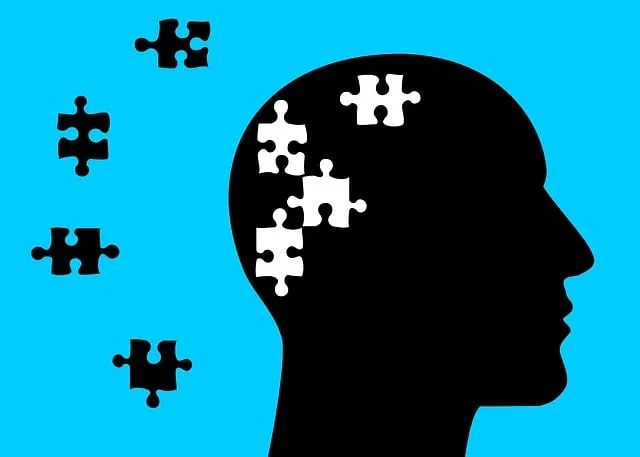Golden Kaiser Permanente's dedicated mental health providers offer comprehensive trauma support through evidence-based practices like CBT, EMDR, Self-Awareness Exercises, and Crisis Intervention Guidance. They create safe spaces, foster trust, and validate traumatic experiences using holistic approaches that include conflict resolution techniques and emotional healing. In the digital age, they enhance accessibility with telemedicine and online resources, while community outreach programs raise awareness and empower individuals to manage anxiety and recover effectively.
Trauma is a pervasive issue with profound implications, necessitating comprehensive support services. This article delves into the critical role of organizations like Golden Kaiser Permanente in addressing trauma’s impact on individuals and communities. We explore strategies for delivering effective trauma-informed care, emphasizing the expertise of mental health providers. By examining access and accessibility, we aim to highlight innovations that ensure help is available to those who need it most, focusing specifically on the valuable contributions of Golden Kaiser Permanente mental health providers.
- Understanding Trauma and Its Impact: A Foundation for Support Services
- The Role of Golden Kaiser Permanente Mental Health Providers
- Effective Strategies for Trauma-Informed Care
- Enhancing Access and Accessibility to Trauma Support Services
Understanding Trauma and Its Impact: A Foundation for Support Services

Trauma is a profound and complex experience that can leave lasting impacts on an individual’s mental health and overall well-being. It stems from various sources, such as violence, abuse, natural disasters, or war, and can manifest in numerous ways. Understanding trauma is essential for establishing effective support services, especially within healthcare settings like Golden Kaiser Permanente. Mental health providers play a pivotal role in recognizing and addressing the unique challenges faced by trauma survivors.
By implementing evidence-based practices, such as Self-Awareness Exercises and Crisis Intervention Guidance, these professionals can help individuals process their traumatic experiences. These interventions promote mood management and resilience, enabling clients to develop coping strategies tailored to their needs. The goal is to foster a safe and supportive environment where trauma survivors feel empowered to heal and rebuild their lives, ultimately improving their mental health outcomes.
The Role of Golden Kaiser Permanente Mental Health Providers

Golden Kaiser Permanente mental health providers play a pivotal role in trauma support services, offering specialized care tailored to individuals’ unique needs. These professionals are equipped with advanced training and expertise in addressing complex trauma, utilizing evidence-based practices such as cognitive behavioural therapy (CBT) and eye movement desensitization and reprocessing (EMDR). They facilitate a safe and non-judgmental environment, fostering self-awareness exercises that empower individuals to process traumatic memories and develop inner strength.
By integrating holistic approaches, Golden Kaiser Permanente mental health providers not only alleviate symptoms of trauma but also promote long-term resilience. They guide clients through challenging journeys, helping them regain control over their lives and achieve lasting anxiety relief. This comprehensive support is crucial in enabling individuals to heal and thrive, rebuilding their sense of safety and well-being.
Effective Strategies for Trauma-Informed Care

Trauma-informed care is a transformative approach that prioritizes understanding and addressing the unique needs of individuals who have experienced trauma. Golden Kaiser Permanente mental health providers recognize that effective support goes beyond traditional therapy. By adopting trauma-informed strategies, they create a safe and supportive environment, fostering trust and encouraging open communication. This involves actively listening to patients’ stories, validating their experiences, and promoting self-awareness.
One key component is integrating conflict resolution techniques, helping individuals navigate and manage intense emotions stemming from traumatic events. Additionally, focusing on emotional healing processes enables clients to process and release repressed feelings, fostering inner strength development. These strategies collectively contribute to a holistic healing journey, empowering individuals to regain control and build resilience in the face of adversity.
Enhancing Access and Accessibility to Trauma Support Services

In today’s digital era, enhancing access to trauma support services is more crucial than ever. Golden Kaiser Permanente mental health providers leverage innovative strategies such as telemedicine and online resources to ensure individuals, regardless of their location or mobility, can receive expert care from the comfort of their homes. This accessibility is vital for fostering a supportive environment where those affected by trauma can begin their journey towards healing.
Community outreach program implementation plays a significant role in this process, helping to raise awareness about available services and encouraging proactive engagement. By integrating coping skills development into these programs, participants gain valuable tools to manage anxiety relief and navigate the path to recovery. Such initiatives create a holistic approach, addressing both the need for accessible support and the importance of equipping individuals with effective coping mechanisms.
Trauma support services play a vital role in helping individuals heal from the profound effects of traumatic experiences. By implementing trauma-informed care strategies, such as those employed by the Golden Kaiser Permanente mental health providers, we can significantly enhance accessibility and improve outcomes. Understanding trauma’s impact and adopting effective practices ensure that support services are tailored to meet diverse needs. Further efforts to expand access, particularly in underserved communities, are crucial steps towards fostering resilience and restoring hope for those affected by trauma.






